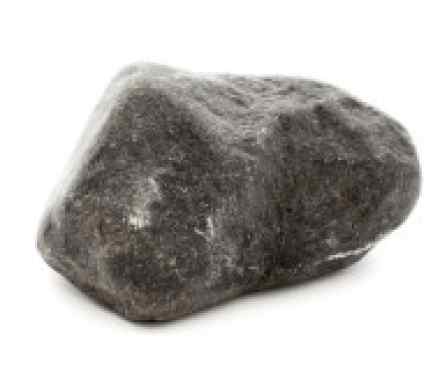
What is it?
Kidney stones (renal lithiasis) are small, hard deposits that form inside your kidneys. Kidney stones are made of mineral and acid salts. Kidney stones have many causes. In one common scenario, kidney stones form when the urine becomes concentrated, allowing minerals to crystallize and stick together.
Passing kidney stones can be painful. The pain of a kidney stone typically starts in your side or back, just below your ribs, and moves to your lower abdomen and groin. The pain may change as the kidney stone moves through your urinary tract.
Kidney stones usually cause no permanent damage. Apart from pain medication and drinking lots of water, treatment is often unnecessary. However, treatment may help prevent recurrent kidney stones in people with increased risk.
Symptoms
A kidney stone may or may not cause signs and symptoms until it has moved into the ureter — the tube connecting the kidney and bladder. At that point, these signs and symptoms may occur:
- Severe pain in the side and back, below the ribs
- Pain that spreads to the lower abdomen and groin
- Pain on urination
- Pink, red or brown urine
- Nausea and vomiting
- Persistent urge to urinate
- Fever and chills if an infection is present
Causes
Kidney stones often have no definite, single cause. A number of factors, often in combination, create the conditions in which susceptible people develop kidney stones.
Kidney stones form when the components of urine — fluid and various minerals and acids — are out of balance. When this happens, your urine contains more crystal-forming substances, such as calcium, oxalate and uric acid, than the available fluid can dilute. At the same time, your urine may be short of substances that keep crystals from sticking together and becoming stones. This creates an environment in which kidney stones are more likely to form.
Types of kidney stones
Most kidney stones contain crystals of more than one type. Types of kidney stones include:
- Calcium stones. Most kidney stones are calcium stones, usually in the form of calcium oxalate. High oxalate levels can be found in some fruits and vegetables, as well as in nuts and chocolate. Your liver also produces oxalate. Dietary factors, high doses of vitamin D, intestinal bypass surgery and several different metabolic disorders can increase the concentration of calcium or oxalate in urine. Calcium stones may also occur in the form of calcium phosphate.
- Struvite stones. Struvite stones form in response to an infection, such as a urinary tract infection. Struvite stones can grow quickly and become quite large.
- Uric acid stones. Uric acid stones can form in people who are dehydrated, those who eat a high-protein diet and those with gout. Certain genetic factors and disorders of the blood-producing tissues also may predispose you to uric acid stones.
- Cystine stones. These stones represent only a small percentage of kidney stones. They form in people with a hereditary disorder that causes the kidneys to excrete excessive amounts of certain amino acids (cystinuria).
- Other stones. Other, rarer types of kidney stones can occur.
Knowing your type of kidney stone helps to understand what might have caused the stone to form and may give clues as to what you can do to reduce your risk of getting additional kidney stones.
Risk factors
Factors that increase your risk of developing kidney stones include:
- Family or personal history of kidney stones. If someone in your family has kidney stones, you're more likely to develop stones, too. And if you've already had one or more kidney stones, you're at increased risk of developing another.
- Being an adult. Kidney stones are most common in adults age 40 and older, though kidney stones may occur at any age.
- Being a man. Men are more likely to develop kidney stones.
- Dehydration. Not drinking enough water each day can increase your risk of kidney stones. People who live in warm climates and those who sweat a lot may need to drink more water than others.
- Certain diets. Eating a diet that's high-protein, high-sodium and high-sugar may increase your risk of some types of kidney stones.
- Being obese. High body mass index (BMI), increased waist size and weight gain have been linked to an increased risk of kidney stones.
- Digestive diseases and surgery. Gastric bypass surgery, inflammatory bowel disease or chronic diarrhea can cause changes in the digestive process that affect your absorption of calcium and increase the levels of stone-forming substances in your urine.
- Other medical conditions. Diseases and conditions that may increase your risk of kidney stones include renal tubular acidosis, cystinuria, hyperparathyroidism and certain urinary tract infections.
Diagnosis
If your doctor suspects you have a kidney stone, you may undergo tests and procedures to diagnose your condition, such as:
- Blood tests. Blood tests may reveal excess calcium or uric acid in your blood. Blood tests allow your doctor to check for other medical conditions and to monitor the health of your kidneys.
- Urine tests. Tests of your urine, such as the 24-hour urine collection, may show that you're excreting too many stone-forming minerals or too few stone-inhibiting substances.
- Imaging tests. Imaging tests may show kidney stones in your urinary tract. Imaging tests may include computerized tomography (CT) or, less commonly, X-ray.
- Analysis of passed stones. You may be asked to urinate through a strainer designed to catch any stones you pass. That way, any stones can be collected for laboratory testing. A laboratory analysis will reveal the makeup of your kidney stones. Your doctor uses this information to determine what's causing your kidney stones and to formulate a plan to prevent future kidney stones.
References
http://www.nhs.uk/conditions/kidney-stones/pages/introduction.aspx
http://www.medicinenet.com/kidney_stones/article.htm
http://www.webmd.com/kidney-stones/kidney-stones-topic-overview
http://www.drugs.com/enc/kidney-stones.html
https://www.hse.ie/eng/health/az/K/Kidney-stones/Symptoms-of-kidney-stones.html

